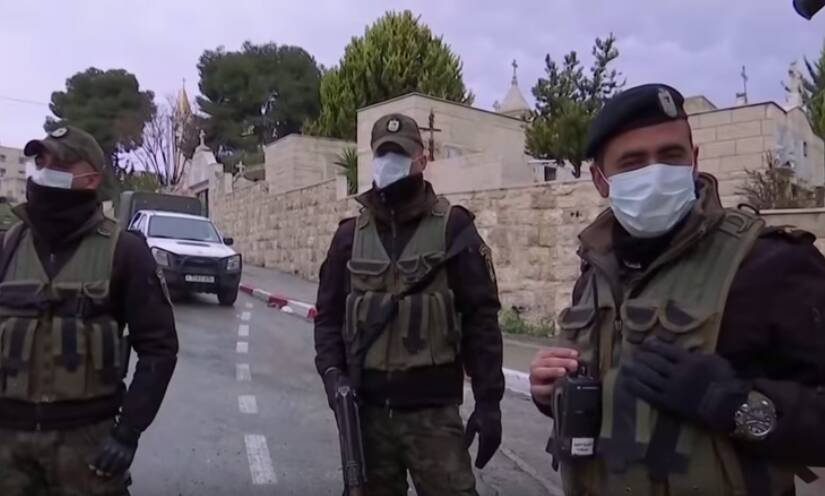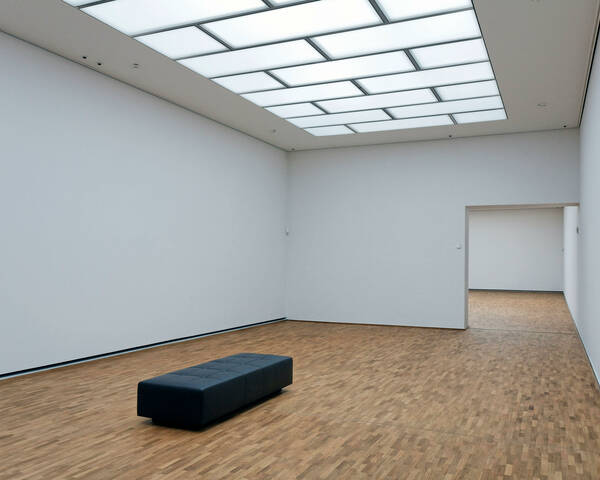The Militarization of Quarantine
Eyal Weizman, director of the interdisciplinary research agency Forensic Architecture, discusses state responses to the Covid-19 crisis and how the “state of exception” might become the norm.

Eyal Weizman is the founding director of Forensic Architecture, an interdisciplinary research agency that uses architectural techniques and technologies to investigate cases of state violence and human rights violations. Weizman—a Professor of Spatial and Visual Cultures at Goldsmiths, University of London, where he founded the Centre for Research Architecture—first developed Forensic Architecture in 2010 to investigate the physical planning aspects of the Israeli occupation of the West Bank. Over the past decade, the group has expanded to include many architects, software developers, filmmakers, journalists, lawyers, artists, and scientists conducting a wide range of investigations, from a reconstruction of the trajectory of a migrant boat that sank in the Aegean Sea in 2015, killing at least 43 refugees, to a report on “herbicidal warfare” in Gaza. Their most recent project is an investigation of possible abuses at the Homestead Temporary Shelter for Unaccompanied Children, a center in Florida for children detained while attempting to enter the United States.
Weizman was supposed to travel to the US for the February opening of an exhibition of Forensic Architecture’s work at the Museum of Art and Design at Miami Dade College. But in mid-February, two days before Weizman was scheduled to fly into Miami, he was denied a visa waiver after a Department of Homeland Security algorithm identified him as a security risk, likely due to his work investigating human rights abuses.
I had initially arranged to speak with Weizman about this experience and how this relates to his work. But given the way the Covid-19 crisis escalated in the days leading up to our conversation, the discussion shifted to focus on Weizman’s perspective on state responses to the Covid-19 outbreak, what these tell us about governmental mechanisms of containment, and what implications the current “emergency state” holds for the future. This conversation has been edited for length and clarity.
Rosa Schwartzburg: Tell me about your experience having your visa waiver denied.
Eyal Weizman: My particular story was the last heartbeat before the coronavirus crisis, which is very telling. Even to speak about that sort of thing as a controversy now seems a bit out of proportion. But my experience certainly gives a flavor of both the hardening of control over circulation and the empowering of the state to enact borders. I don’t want to make a big deal about it—my experience with US immigration was much less violent and severe than many others’. It is violent only in the way that it exposes the relationship between surveillance and the border.
Certainly, right now we are seeing how borders are springing up in Europe in reaction. Going forward, it will be interesting to observe the suspicion we will have toward travel, and to see how fear from this crisis is going to affect attitudes toward migration.
RS: What do you think the different government responses to the Covid-19 outbreak—from South Korea, to Israel, to the European Union—tell us about the relationship between mechanisms of containment and surveillance?
EW: We’re seeing the tendencies within different governments and regimes around the world enacting policies that are simply crystallizations of currents already latent within these political systems. A good example is Israel, where the state of emergency rule in the West Bank has enabled the militarization of quarantine—we certainly see this in the quarantining of citizens around Bethlehem. We are also seeing how Israel is using this crisis to erode civil liberties; for instance, by having the population become accustomed to having their phones surveilled. We are also seeing latent epistemological tendencies in how regimes have cracked down on scientific expertise. Boris Johnson, Jair Bolsonaro, and Donald Trump have all been elected on the basis of an attack on science, and those suspicions are certainly continuing as this all unfolds.
RS: For the left, the coronavirus crisis has brought to light certain ambivalences about state power. On the one hand, we want the government to act quickly and responsibly to stop the spread of the virus; on the other hand, many of the measures taken—especially if they remain in place after the crisis is over—pose severe threats to our civil liberties, to privacy, and to the possibility of collective action. How do you think about this tension?
EW: We see that the crisis has enabled militarization that brushes aside the usual relationship between guardians and civil liberties. So we have to ask: Will we be able to control state power after the coronavirus crisis? Usually, we aren’t able to regain control. Usually, the crisis comes and a new scientific and political regime comes with it. I fear that this is the opportunity in the state of emergency: it allows what should be the exception to become the norm.
RS: As you alluded to, in Israel, Benjamin Netanyahu has approved overnight the use of aggressive data extraction and surveillance measures developed for military use in the occupied territories to monitor coronavirus patients. How do you understand this redeployment of the technologies of counterterrorism—of tools for managing the occupation—within Israel proper?
EW: In Israel, the clearest form of this can be seen in the militarization of the medical situation and its relationship to the digital and algorithmic surveillance systems. We are seeing new uses of the infrastructure of smart cities—the license plate readers, the monitoring of traffic. This, of course, allows the government to control and monitor the flow of traffic in and out of areas of the West Bank, and is now being used to contain the virus in areas of the assumed outbreak within Palestinian cities. That relationship between surveillance and bordering is just one of the ways in which the crisis has been militarized.
RS: How will the coronavirus outbreak impact Forensic Architecture’s capability to conduct investigations going forward?
EW: It’s far too early to say. For now, we have reconfigured the way we work. We’ve completely scattered our physical studio, both throughout London and worldwide. We have members who left when they could still leave, to travel to Columbia, Greece, and other places, and we are all continuing our work remotely. We are monitoring the erosion of civil liberties right now. We are very concerned about the exact same things we’ve previously been looking at: algorithmic surveillance and its relation to civil liberties.
Rosa Schwartzburg is a reporter and essayist with work in The New York Times, The Guardian, The Nation, Jacobin, Slate, and many other publications. She holds an MA from the Central European University and currently attends the Columbia University Graduate School of Journalism.
